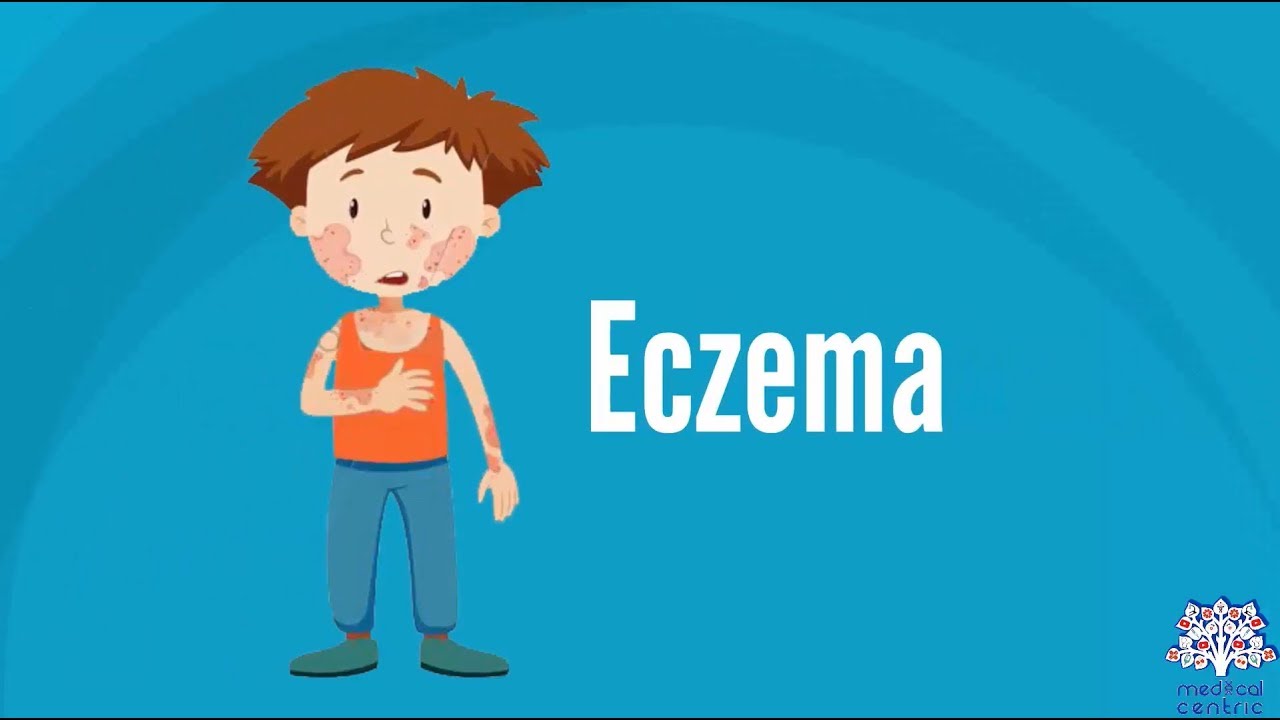Eczema - How To Live An Itch Free Life
Eczema, also known as atopic dermatitis, is a chronic skin condition that affects millions of people worldwide. It is characterized by dry, itchy, and inflamed skin that can be uncomfortable and embarrassing.
Author:Suleman ShahReviewer:Han JuFeb 08, 202333K Shares919K Views

Eczema, also known as atopic dermatitis, is a chronic skin condition that affects millions of people worldwide. It is characterized by dry, itchy, and inflamed skin that can be uncomfortable and embarrassing.
Eczema can occur at any age and tends to be more common in children, although it can persist into adulthood. The exact cause of eczema is unknown, but it is believed to be related to a combination of genetic and environmental factors.
The condition is not contagious and cannot be passed from person to person. With proper treatment and management, it is possible to reduce the frequency and severity of eczema symptoms and achieve clearer, healthier skin.
Understanding Eczema
Eczema, also known as atopic dermatitis, is a chronic skin condition that affects millions of people worldwide. It is characterized by dry, itchy, and inflamed skin that can be uncomfortable and embarrassing.
The exact cause of eczema is unknown, but it is believed to be related to a combination of genetic and environmental factors, such as allergies, irritants, stress, and changes in temperature or humidity.
Symptoms of eczema can vary, but commonly include dry, itchy skin, redness, rashes, and blisters. In severe cases, the skin may crack and bleed, which can increase the risk of infection. Eczema can be a lifelong condition, but the severity and frequency of symptoms can vary over time.
Diagnosis of eczema is typically made based on the appearance of the skin and a medical history. A skin biopsy may be performed in some cases to rule out other conditions.
While there is no cure for eczema, with proper treatment and management, it is possible to reduce the frequency and severity of symptoms and achieve clearer, healthier skin. Treatment options may include topical creams and ointments, oral medications, phototherapy, and lifestyle changes to support skin health.

What is Eczema? Causes, Signs and Symptoms, Diagnosis and Treatment.
How To Avoid Eczema
Cleaning
Maintaining a high level of cleanliness and hygiene may help you avoid a wide variety of health problems. It reduces the number of allergens that are present in your environment. Maintain a regular cleaning schedule, replace the slipcovers on your cushions, and wash them in a detergent formulated for delicate fabrics.
It is important to have proper cross ventilation in order to keep the proliferation of allergies under control. It is possible that this will assist you in controlling the development of potentially hazardous microorganisms as well.
Avoiding
You need to stay away from the foods that make the problem even worse. The irritants, on the other hand, should be avoided at all costs; this was covered previously in the conversation. It will be of use to you in maintaining control of the eczema.
Moisturizing
In order to prevent your skin from scaling and itching, you should always use a moisturizer when you get out of the shower. It will help to prevent any kind of illness while also keeping your skin moisturized and healthy.
Manage Your Stress
When you are under pressure, your body will start producing a hormone known as cortisol. Inflammationis something that's brought on by cortisol in your body. Therefore, it causes an outbreak of your eczema. Therefore, make an effort to prevent stress. Maintain your composure and get enough sleep to rid yourself of tension.
Moisturizing For Eczema
Moisturizing is a key component of managing eczema. Dry skin can worsen eczema symptoms, making it important to keep the skin hydrated and moisturized. Using a good quality, fragrance-free moisturizer can help soothe dry, itchy skin and reduce redness and inflammation.
Here are a few tips for moisturizing with eczema:
- Apply moisturizer regularly:It is best to apply moisturizer within 3 minutes of showering or bathing, while the skin is still damp. This helps lock in moisture and prevent dryness. It is also important to reapply moisturizer as needed throughout the day.
- Choose the right moisturizer:Look for a thick, fragrance-free cream or ointment that is formulated for sensitive skin. Ingredients such as ceramides and glycerin can help restore the skin’s barrier and reduce dryness.
- Avoid irritants:Avoid products that contain fragrances, alcohol, and other ingredients that can irritate the skin. Eczema-friendly moisturizers should be free of dyes, preservatives, and other harsh chemicals.
- Avoid hot showers and baths:Hot water can strip the skin of its natural oils, making it dry and itchy. Use lukewarm water instead and limit showers or baths to no more than 10 minutes.
- Use gentle products:Avoid using harsh soaps, detergents, and other products that can dry out the skin. Look for gentle, fragrance-free products that are formulated for sensitive skin.
By incorporating these tips into your skincare routine, you can help soothe and hydrate dry, itchy skin, and reduce the symptoms of eczema. With proper care, it is possible to achieve clearer, healthier skin and an itch-free life.
Diet And Eczema
Diet can play a role in the management of eczema symptoms. While there is no specific diet that has been proven to cure eczema, making dietary changes can help reduce inflammation and improve overall skin health.
Here are a few tips for a diet that may support eczema management:
- Increase anti-inflammatory foods:Include more foods in your diet that are rich in anti-inflammatory compounds, such as omega-3 fatty acids (found in fatty fish like salmon), fruits, and vegetables.
- Avoid potential allergens:Common food allergens such as dairy, eggs, soy, wheat, peanuts, and tree nuts can trigger eczema symptoms. If you suspect that a certain food is causing eczema flare-ups, consider eliminating it from your diet for a period of time and re-introducing it later to see if it causes a reaction.
- Hydrate:Drink plenty of water to help keep skin hydrated from the inside out.
- Limit processed foods: Processed foods can be high in salt, sugar, and unhealthy fats, which can contribute to inflammation.
- Consider probiotics:Probiotics, the beneficial bacteria found in yogurt and other fermented foods, have been shown to have anti-inflammatory effects and may help improve skin health.
It is important to keep in mind that everyone's body reacts differently to different foods, and what works for one person may not work for another. If you are considering making dietary changes to manage your eczema, it is best to consult with a doctor or a registered dietitian.
While diet may not be a cure for eczema, making dietary changes that reduce inflammation and improve overall health can be helpful in managing eczema symptoms. A balanced diet that includes plenty of fruits, vegetables,
People Also Ask
Is Eczema Hereditary?
There is a genetic component to eczema, so it can run in families.
Can Diet Affect Eczema?
Certain foods and food additives can trigger eczema symptoms, so a balanced and healthy diet can help manage the condition.
Are There Any Home Remedies For Eczema?
Yes, there are many home remedies for eczema, including oatmeal baths, coconut oil, and aloe vera. It is important to consult a healthcare provider before trying any new remedies.
Final Thought
Eczema is a chronic skin condition that affects millions of people worldwide. While the exact cause of eczema is unknown, it is believed to be related to a combination of genetic and environmental factors.
Although there is no cure for eczema, with proper treatment and management, it is possible to reduce the frequency and severity of symptoms and achieve clearer, healthier skin. It is important to work closely with a healthcare provider to develop an individualized treatment plan and make lifestyle changes to support skin health.
By following a combination of treatments and lifestyle changes, individuals with eczema can improve their quality of life and reduce the impact of the condition on their daily lives.

Suleman Shah
Author
Suleman Shah is a researcher and freelance writer. As a researcher, he has worked with MNS University of Agriculture, Multan (Pakistan) and Texas A & M University (USA). He regularly writes science articles and blogs for science news website immersse.com and open access publishers OA Publishing London and Scientific Times. He loves to keep himself updated on scientific developments and convert these developments into everyday language to update the readers about the developments in the scientific era. His primary research focus is Plant sciences, and he contributed to this field by publishing his research in scientific journals and presenting his work at many Conferences.
Shah graduated from the University of Agriculture Faisalabad (Pakistan) and started his professional carrier with Jaffer Agro Services and later with the Agriculture Department of the Government of Pakistan. His research interest compelled and attracted him to proceed with his carrier in Plant sciences research. So, he started his Ph.D. in Soil Science at MNS University of Agriculture Multan (Pakistan). Later, he started working as a visiting scholar with Texas A&M University (USA).
Shah’s experience with big Open Excess publishers like Springers, Frontiers, MDPI, etc., testified to his belief in Open Access as a barrier-removing mechanism between researchers and the readers of their research. Shah believes that Open Access is revolutionizing the publication process and benefitting research in all fields.

Han Ju
Reviewer
Hello! I'm Han Ju, the heart behind World Wide Journals. My life is a unique tapestry woven from the threads of news, spirituality, and science, enriched by melodies from my guitar. Raised amidst tales of the ancient and the arcane, I developed a keen eye for the stories that truly matter. Through my work, I seek to bridge the seen with the unseen, marrying the rigor of science with the depth of spirituality.
Each article at World Wide Journals is a piece of this ongoing quest, blending analysis with personal reflection. Whether exploring quantum frontiers or strumming chords under the stars, my aim is to inspire and provoke thought, inviting you into a world where every discovery is a note in the grand symphony of existence.
Welcome aboard this journey of insight and exploration, where curiosity leads and music guides.
Latest Articles
Popular Articles